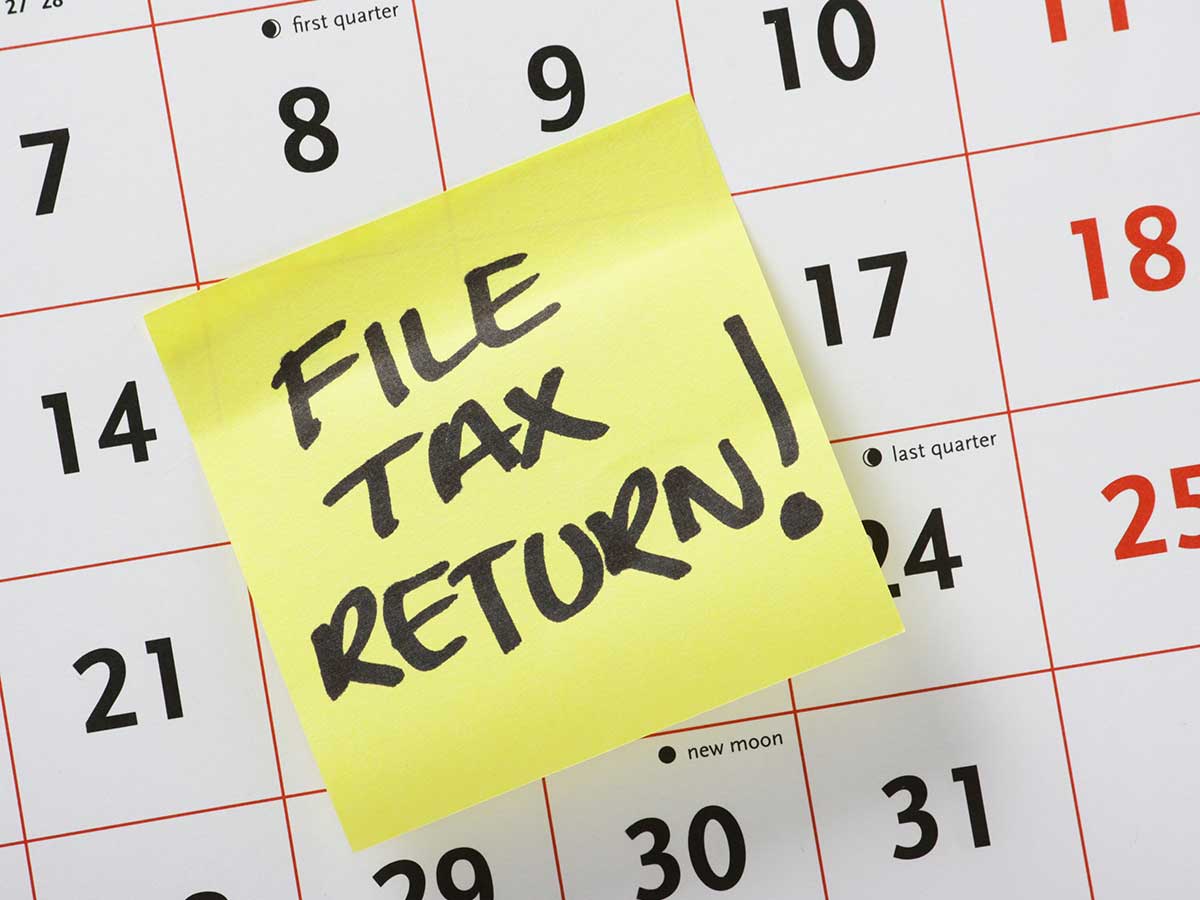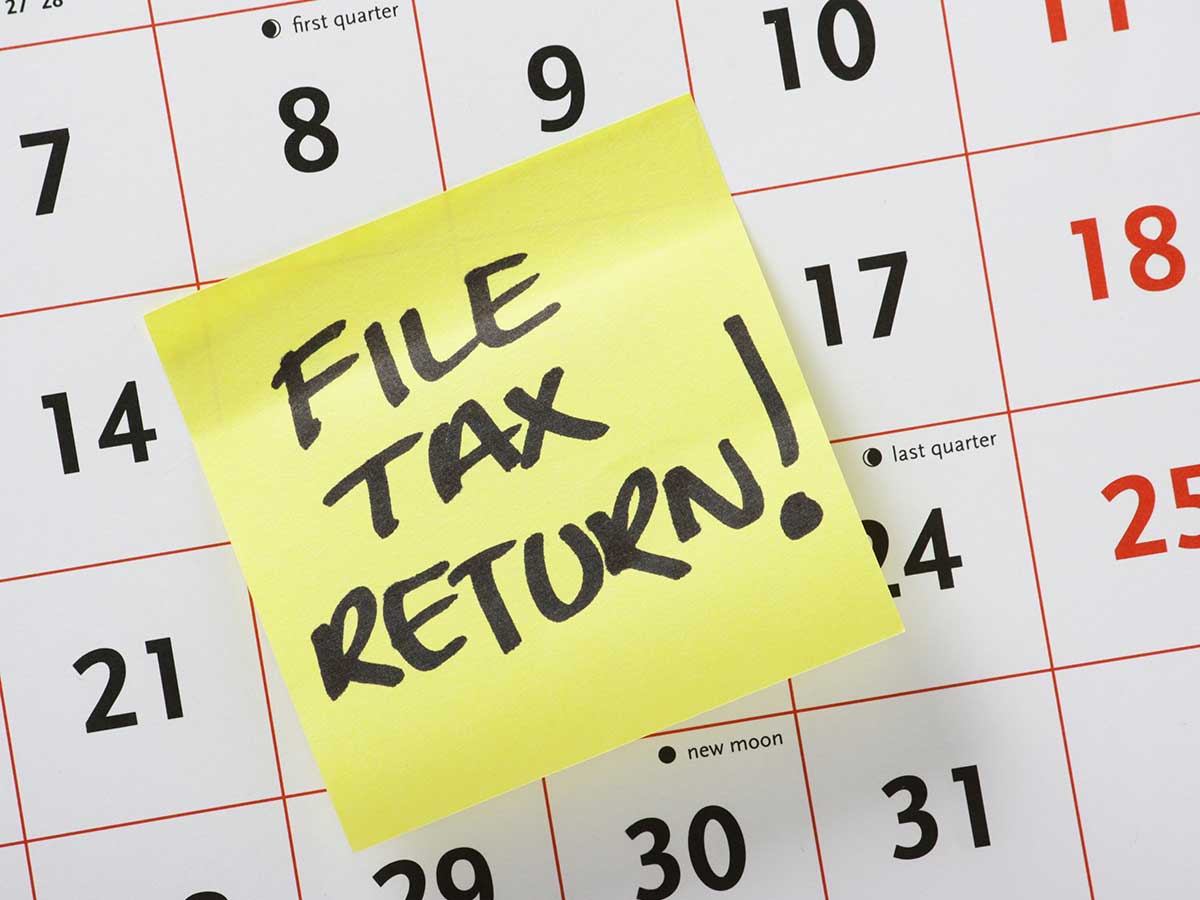
All the tax-filing deadlines you need to know
 On its website, the Government of Canada says that if you file online before April 30, 2019, you can request an express notice of assessment and expect to receive your refund in as few as eight days (Shutterstock/Thinglass)
On its website, the Government of Canada says that if you file online before April 30, 2019, you can request an express notice of assessment and expect to receive your refund in as few as eight days (Shutterstock/Thinglass)
Most people in Canada plan to file their taxes on time, a recent H&R Block survey says.
According to the survey, which polled 1,522 Canadian adults in 2017 about their tax filing patterns, 45 per cent of respondents said they planned to file more than a month in advance, while 38 per cent planned to have it done within a month of the April 30 deadline.
Only 11 per cent said they leave it until a week before the deadline, while five per cent of those who file their taxes miss the deadline completely, says Lisa Gittens, senior tax expert at H&R Block.
However, a second H&R Block survey, which polled 1,508 Canadian adults in early April 2018, found that 44 per cent of respondents still had not filed their taxes. But as more and more people file near the April 30 deadline, a bottleneck slows down assessments—and refunds, says Marissa Verskin, tax partner at Crowe Soberman LLP.
“When people file earlier in the season, they tend to get assessed more quickly,” she says. “It’s really based on volume.”
To help you get ahead of the line, here’s a list of deadlines that apply to individuals, which you should be aware of.
DEADLINES YOU NEED TO KNOW
Earliest date for filing taxes: Tax filing season opened on Feb. 19, 2019.
Deadline for filing for individual taxpayers: April 30, 2019.
Deadline for payments for individual taxpayers: Unless you have specific circumstances (such as a second job or revenue from income property) that require you to pay taxes by instalment, your tax balance is due April 30, 2019.
Deadline for filing for self-employed taxpayers (and their spouses): June 17, 2019. (The due date is usually June 15, but since that date falls on a Saturday this year, the deadline is the next business day, June 17.) The Quebec TP1 personal return is also due on June 17 for self-employed taxpayers and their spouses.
Deadline for payment for self-employed taxpayers (and their spouses): Despite the later deadline for filing, self-employed tax payers (and their spouses) are required to pay their taxes by April 30, 2019.
Deadline for filing and payment by deceased taxpayers: If a person died between Jan. 1 and Oct. 31, 2018, their tax filing is due on April 30, 2019. If a person died between Nov. 1 and Dec. 31, 2018, their tax filing and payment is due six months from the date of their death.
Deadline for filing and payment for deceased taxpayers who were carrying on a business at the time of death: If a person died between Jan. 1 and Dec. 15, 2018 and their business was active at the time, their tax filing is due on Jun 17, 2019. If a person died between Dec. 16 and Dec. 31, 2018, their tax filing and payment is due six months from the date of their death.
WHY FILE ON TIME?
For starters, you’ll ensure there is no interruption to payments you receive for federal programs such as the Canada Child Benefit and GST/HST tax credits, as well as payments from provincial programs that are administered by the Canada Revenue Agency (CRA). Also, penalties can apply when returns are filed late and interest can apply on amounts that are overdue.
In addition, this year, Canadians in New Brunswick, Ontario, Manitoba and Saskatchewan will receive the new Climate Action Incentive credit in varying amounts based on their 2018 tax return. Consumers in these provinces can expect to pay more for gas and transit in 2019 because of the Government of Canada’s climate change plan, and the incentive is meant to be a rebate.
“For those who file early, they’ll get their refund in their hand before the fuel charge kicks in in April,” says Gittens, adding that receiving the rebate in advance will be especially important for people with low or fixed incomes.
METHODS FOR FILING
On its website, the Government of Canada says that if you file online before April 30, 2019, you can request an express notice of assessment and can expect to receive your refund in as few as eight days.
When filing by snail mail, your return should be postmarked before midnight on the appropriate filing deadline, either April 30, 2019 or, for self-employed individuals, June 17, 2019. Expect to wait eight weeks to receive your notice of assessment and refund.
Some people with low or fixed incomes are eligible to file their returns for free by phone and will be notified by an invitation letter. Those with a modest income and simple tax filings may qualify to receive free help from a volunteer to file their tax returns.
GET ORGANIZED WITH YOUR TAXES
From categorizing all your paperwork to knowing your rights if you get audited, these tips from CPAs will help you successfully prepare for filing your taxes.